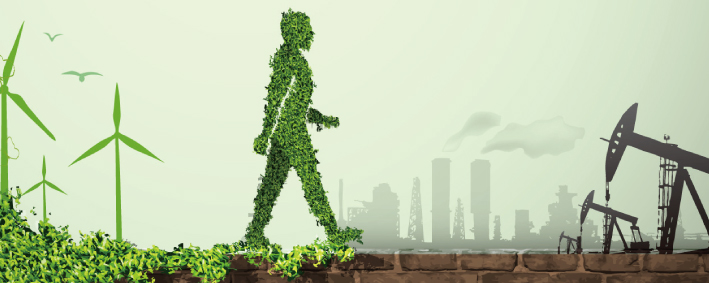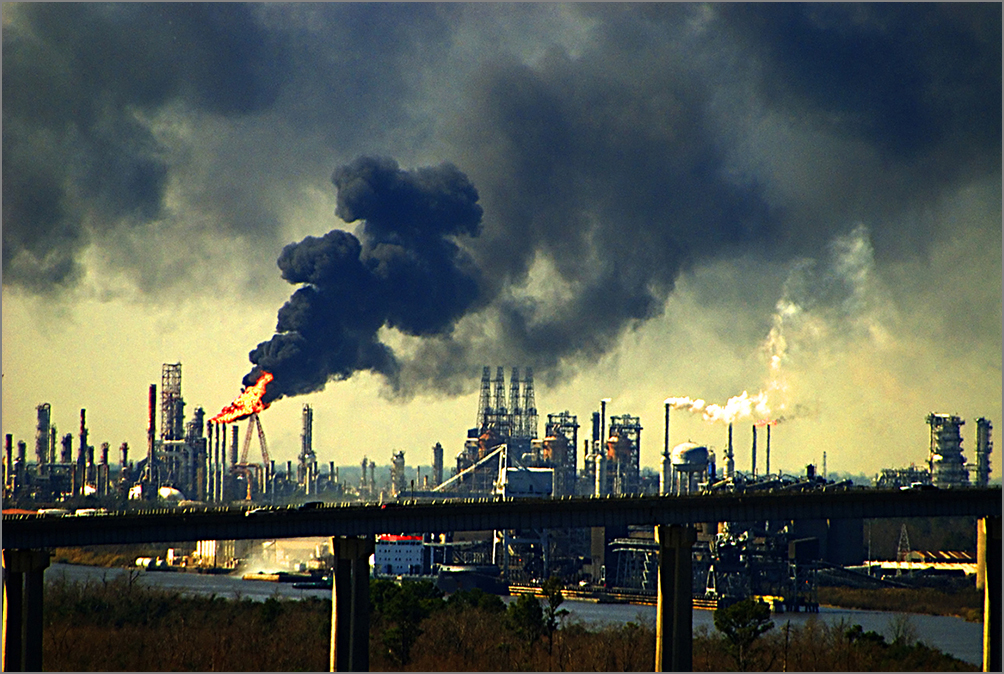'Baked' New World: How Determined are We to Fight the Climate Crisis?

When a man says to me, “I have the intensest love of nature,” at once I know that he has none. —Ralph Waldo Emerson
Thank God men cannot fly, and lay waste the sky as well as the earth. —Henry David Thoreau
It goes without saying that governments and politicians (should) care about the well-being of their people, but also about sustainable development and the progress of their countries. Oh wait… reality check! That’s what you’re fooled into believing during the brain-drenching campaign speeches, only to realize that most governments will provide just enough to make you lead your mundane, mortgage-infested lives. Faced with the real threat of destroying the environment as well as eradicating wildlife populations disturbingly faster than anyone could have imagined, governments and their leaders still do not seem to take the issue of environment protection seriously. The ever-discussed carbon emission reduction and sustainable development continuosly remains an overlooked item on the agenda. Almost every day, we come across the experts’ warnings about the dangers of global warming, deforestation, air pollution, rising sea levels, improper waste disposal, and excessive emission of carbon dioxide. During the UN Climate Change Conference, held in Paris, December 2015, world leaders and delegates pledged to limit global warming to 2 degrees Celsius of pre-industrial level, as well as to considerably increase the use of renewable energy resources. Moreover, a number of advanced and developing economies presented their programs on carbon emission reduction. For example:
Japan aims to derive 22-24% of its electricity production from renewable sources by 2030 and the European Union plans for them to reach 27% of its final energy consumption, [while] 40% of non-G20 countries which have submitted their contribution have set specific > targets in this area, such as Jordan (11% of the energy mix in 2025), Côte d’Ivoire (16% of the energy mix by 2030, 32% with international support) and Algeria (27% of national electricity production by 2030). (188 Countries have committed to reducing their greenhouse gas emissions)
To preserve their forests and nurture biodiversity, many countries have set targets of achieving “0% deforestation by 2030 (such as Mexico), while the Democratic Republic of the Congo plans to plant about 3 million hectares of forest by no later than 2025. China’s reforestation programme, which is already underway, will help to increase the national forest stock by 4.5 billion cubic metres by 2030 compared to 2005, thus doubling the accomplishment of the past ten years” (188 Countries have committed to reducing their greenhouse gas emissions). Needless to say that the 2030 UN Agenda for Sustainable Development, adopted in September 2015, clearly outlines the 17 goals to be realized over the next 15 years, seeking to end poverty and hunger worldwide, but also to protect the natural resources and take urgent action on climate change.
Sounds ambitious, right? What are the odds that the targets set by certain countries can be realized in due time? Can the preservation of environment and the elimination of poverty and hunger become the things that will actually unify world governments and their leaders? In other words, is the general human population willing to put aside their differences, as well as possible sources of antagonism, in order to provide a healthy and sustainable environment for posterity? Even though one year has elapsed since the Paris climate change agreement, many of the world’s nations that had pledged to ratify the Agreement and pass it into their laws have not done so yet. So far, it seems that the only nations to actually care about acting promptly on this matter are small island states that have largely been affected by global warming over the last few decades. To lessen the effects of a possible climate crisis, and to save the planet by shifting from fossil fuels to green energy by 2100 (which is expected to limit the global warming below 2 degrees Celsius above the pre-industrial levels), governments ought to incorporate drastic measures into their sustainability programs. Planet Earth has no time left to waste, and our efforts to preserve it are more pertinent than ever.
The World Meteorological Organization (WMO) has warned about the quick progress of global warming. For example, the last three years have gone down as the three hottest years ever measured: “What we’ve seen for the first six months of 2016 is really quite alarming. We would have thought it would take several years to warm up like this. We don’t have as much time as we thought” (2016 set to be world’s hottest year on record, says UN). To make the situation even more alarming, the past eight months were the hottest months since the late nineteenth century: “June 2016 was 1.62 degrees F above the 20th century average, breaking last year’s record for the warmest June on record by 0.04 degrees F, according to scientists from NOAA’s National Centers for Environmental Information” (National Oceanic and Atmospheric Administration, U.S. Department of Commerce). Over the last decade, there have been multiple cases of farmers losing their crops due to extreme drought (this has been happening not only in economically less developed countries, but also in countries like the US, the UK, Japan, Canada, Germany, etc.); the number of wildlife populations has dwindled (e.g. the population of freshwater species has declined by 76% over the last four decades, according to the London Zoological Society); due to unusally high temperatures in the region–after 75 years–anthrax has returned to the Russian town of Salekhard situated in the Arctic circle, resulting in 2,300 deaths of reindeers and infecting five adults and two children; coral reefs around the world are bleaching and dying. And yet, despite all the natural disasters happening worldwide, we can still come across scientists and theorists, as well as state leaders, who persistently deny the maltreatment of the planet, executed by humans on a daily basis.
 Steel mills just outside Hamilton, Canada
Steel mills just outside Hamilton, Canada
If there is a serious clash of opinion on climate change among scientists and state leaders, how are we supposed to take a step further, on a larger scale? It would be superfluous to list all the steps that corporations and oil lobbysts (oftentimes backed up by state governments) have undertaken for the systemic destruction of environment. If humanity fails to prevent a major climate disaster, we have only ourselves to blame. Governments should not always be accountable for the passivity, rash and indifferent attitudes of state populations. Even the smallest action on our part could make a world of difference. It is not enough to simply go out in the streets and wave your protest banners. All your frustrations and emotions written on the banner lose their significance unless actual appeals to the government are made and concrete solutions/recommendations are presented and included in the agenda. Each one of us ought to engage more in appealing to their local and national authorities to make the preservation of environment a priority. In order to execute a change which may have a global impact, it is necessary to first recognize and acknowledge the potentiality for improvement and development in our local communities. Once we have effected a change in the way we treat our environment, locally, from then on, we can move to a multitudinous stage and act globally.
Every big change starts with small steps, in your own house, neighbourhood, and/or community. Sometimes, all it takes to trigger a fruitful change is to embrace the gifts of nature, as well as incorporate and preserve the elements of nature in cityscapes. Furthermore, citizens of less developed nations cannot expect to make changes only once their governments are granted funds by the international community. We cannot just sit back into our office chairs and shape our existence according to the material gain. Just because we’ve chosen to make the human existence deprived of sincere emotions and of an appreciation for arts and beauty, that shouldn’t mean that the world of nature is to be shunned and turned into a wasteland. Our greatest pride should not be how much money and material objects we can provide for posterity; instead, the greatest accomplishment of the human race should be measured by its ability to nurture and preserve the planet, without which our own existence would be implausible.
All nature has a feeling: woods, fields, brooks Are life eternal; and in silence they Speak happiness beyond the reach of books; There’s nothing mortal in them; their decay Is the green life of change; to pass away And come again in blooms revivified. Its birth was heaven, eternal is its stay, And with the sun and moon shall still abide, Beneath their day and night and heaven wide. —John Clare
